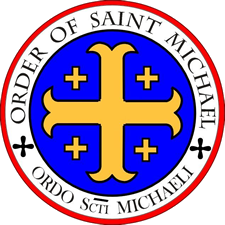Les Arpents Malheureux

By Armand Thiers (Pen-name)

By Armand Thiers (Pen-name)
The Arpents Malheureux is a french novel written by the mysterious Armand Thiers. The novel, follows the life of Jean-Baptiste Bourgogne, a farmer from the Gers and is divided in four parts, named for each season. If Spring and Summer constitutes an unapologetic promotion of rural life, Autumn and Winter marked its decline. In the end, Jean-Baptiste Bourgogne, who devoted his whole life to his land, will die in exile in a small town of the Low-Countries.
Spring :This first part of the novel set the decor of the whole oeuvre. Jean-Baptiste Bourgogne, an orphan, lives with his uncle Robert, a childless widower. He his madly in love with Églantine Blanchet, the daughter of a nearby farmer, and is well intent on marrying her, given that his uncle is willing to cede him the land as a wedding gift. Jean-Baptiste inherits the land faster than expected, as his uncle died prematurely. “The poor old man would finish his days in the village, like he had planned. He died on his farm, lying in the earth of his land who had not consented to such a divorce.” After mourning, Jean-Baptiste marries Églantine and their first children are born.
Summer: The family keeps getting bigger, as Jean-Baptiste is an adept and prosperous farmer. He now has eight living children, while having lost 5 to the depredations of sickness. Every year, while other farmer spends their hard-earned money on baubles and drinks, Jean-Baptiste brings his earnings to his notary, depositing them for interests. His eldest son, Richard, is accepted to the Seminary, a fact that covers him with pride and joy. He is now a minor notable in his hamlet. However, toward the end of this second part, his life slowly starts to unravel. First, his wife, exhausted by the numerous pregnancies, dies. Moreover, his third son, Thomassin, discontent to be working on a land which shall not be willed to him in the end, is harboring ideas of starting a new life in the Low-Countries.
Fall : The season of all miseries! Élodie, his rebellious daughter, has fled the paternal house to go live in Paris. Richard, now graduated from the Seminary, is assigned to a remote parish in Brittany, where he is lodged poorly and badly treated by the Church. He quickly catches a deadly sickness and expires. Thomassin having enough of this life, deserted the land and relocated to the Low-Countries. Even worse, Jean-Baptiste get involved in lawsuits against a neighbor, which he loses even though his case was worthy and right. Upon coming back from the the trial, he witnesses a large column of smoke. His barn, with the entire harvest, has been destroyed by fire. When he travels to his notary to gather the necessary funds to rebuild, he realizes that the new notary, who took the practice when his old one retired, had fled with the money. Ruined, Jean-Baptiste is forced by his second son, his heir, to cede him the land early, in exchange for a modest stipend.
Winter : In this final part, Jean-Baptiste decides to visit his son in the Low-Countries, where he has found employment in a factory. Quite shocked that his son had married a Dutch girl without his consent, he realizes that his grand-children knows not a word of French. Saddened and desirous of returning to France, he is unable to afford it because his second son, to whom he bequeathed the land in exchange of a rent, defaults on the payments. He dies in exile, estranged from all he held dear.
The Arpents Malheureux was a contradictory novel, which could appeal to a diverse crowd. On the one hand, by lionizing rural life, the book was promoting the simplistic values of agrarian life. The generally despicable roles attributed to the youth by the author, them being ungrateful and rebellious, was carefully weighted to appeal to a generation which labored to understand their own children, often swept away by the winds of liberalism. On the other hand, the more astute readers could discern the contours of a carefully masked but quite scathing critique of the religious mindset of the Ancien Régime, which valued obedience, loyalty and industry, such values being displayed by the main protagonist who ends up in misery nonetheless. The faillite of the institutions, represented by the Church letting Bourgogne's son die, and his new notary taking off with his lifetime savings, was perceived by some as a prophetic critic of the current society.





